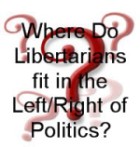A cautionary tale
February 10, 2009
Insta Pundit University of Tennessee School of Law Knoxville, TN
Dear Mr. Pundit,
I am writing to inform you that the Federal Election Commission has voted unanimously to support my recommendation that there is "reason to believe" that you have violated federal election law. Pursuant to that finding, the Commission has opened an investigation of these violations.
I hereby direct you to provide sworn written answers to the following questions related to your violation of federal election law.
1. Did you on or before August 30, 2008, state on your "blog" that "If elected, Hillary Clinton will be the worst U.S. president of my lifetime"?
2. Did you on or before August 10, 2008, state on your "blog" that "John McCain is an enemy of the First Amendment. If he is elected president, the nation is in trouble."?
3. Did your "blog" on August 10, 2008, and August 30, 2008, receive in excess of 100,000 visitors?
As part of its investigation, the Commission has subpoenaed your hosting company to provide information about activity on your "blog" on the dates in question in relation to the questions above.
Please note: if you refuse to provide sworn written answers to these questions, the Commission can ask a federal district court to enforce these subpoenas and orders.
In your last letter to the Commission, you stated that "my alleged blogging about Senators McCain and Clinton is protected from government regulation by the First Amendment to the U.S. Constitution." You conclude: "The Constitution says 'Congress shall make no law... abridging freedom of speech.' No law means no law."
This is incorrect. The Supreme Court has long recognized that Congress may restrict the financing of campaigns to prevent corruption or the appearance of corruption. The Court has also stated that Congress may close loopholes in campaign finance law by regulating speech that influences federal elections.
In 2008, Senators Clinton and McCain were the major party candidates in a federal election for the presidency. The Commission has ruled that messages that reach over 100,000 voters nationally (or 25,000 voters in an electioneering area) may be assumed to influence a federal election. The complaint against you alleges that your statements received well over 200,000 hits on the dates in question.
You also state that you received no payments to blog about the election from any candidate, candidate's committee, or political party. That is irrelevant. Congress and the Commission, with the blessing of the Supreme Court, have decided that your influence on federal elections justifies regulation of your activities. If your attempts to influence federal elections were not regulated, the entire structure of campaign finance regulation (and hence, the very integrity of our democracy) would be threatened.
Frankly, we are surprised that a law professor would make such absurd claims based on the outmoded "Congress shall make no law" view of the First Amendment. In fact, Congress has complete authority to regulate freedom of speech to realize the values underlying the First Amendment. If you doubt that, please read the Supreme Court decision in McConnell v. Federal Election Commission (2003).
In 2007 Congress passed the Internet Freedom, Responsibility and Level Playing Field Act which states that Internet messages influencing federal elections shall be valued at ten cents per voter affected by the message. If the facts are as alleged in the complaint, you have apparently contributed $20,000 to the presidential campaigns of both Senator McCain and Senator Clinton. Federal law limits individual contributions to $2251.01 annually.
The Office of General Counsel will review your sworn, written answers to these questions and prepare a brief that recommends whether the Commission should find there is "probable cause to believe" you have violated federal election law. You or your attorney will have fifteen (15) days to respond to this brief.
Have a great day,
Office of General CounselFederal Election Commission
This article appeared in the American Spectator on May 10, 2005.

 Contact Me
Contact Me










0 Comments:
Post a Comment
<< Home